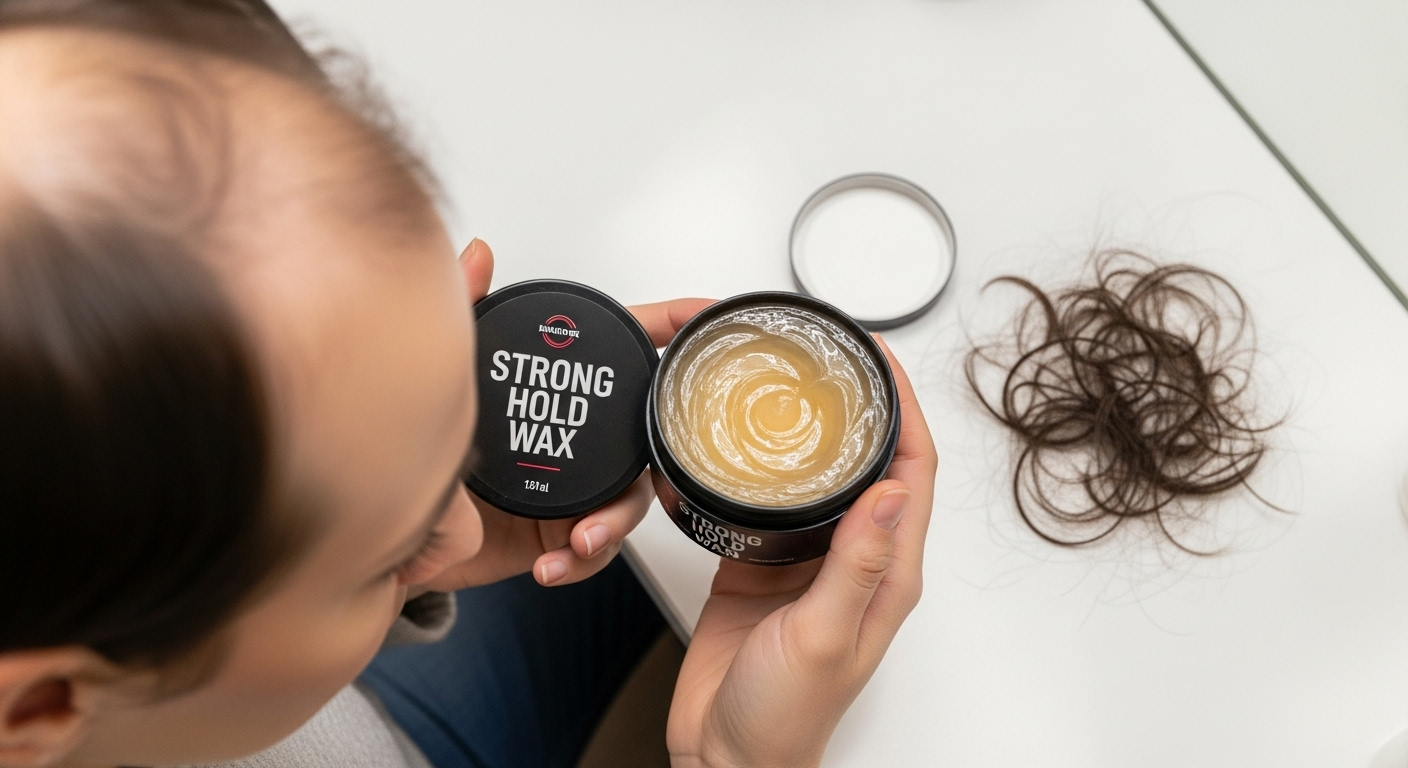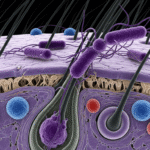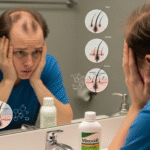If you've noticed increased hair shedding after using hair wax, you're not alone. Many individuals are concerned about the potential link that Can hair wax cause hair loss. While hair wax itself doesn't directly cause hair loss, improper use can lead to scalp issues and hair thinning. This article delves into how hair wax affects …
If you’ve noticed increased hair shedding after using hair wax, you’re not alone. Many individuals are concerned about the potential link that Can hair wax cause hair loss. While hair wax itself doesn’t directly cause hair loss, improper use can lead to scalp issues and hair thinning.
This article delves into how hair wax affects hair health, offers expert insights, and provides practical tips to maintain a healthy scalp and hair. By understanding these factors, you can enjoy styling your hair without compromising its health.
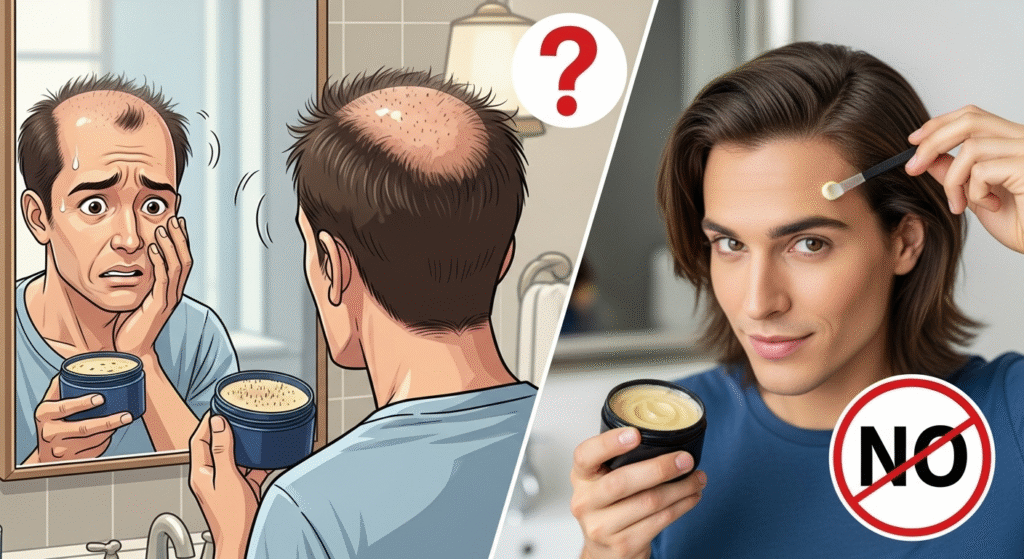
Understanding Can hair wax cause hair loss
What Is Hair Wax?
Hair wax is a popular hairstyling product used to create a textured, long-lasting hold for various hairstyles. Unlike hair gels, which can harden and flake, hair wax provides a more natural, pliable finish.
The product often contains ingredients such as beeswax, lanolin, and various oils, all of which contribute to its strong hold and matte or glossy finish.
How Does Hair Wax Work?
Hair wax works by adding texture and control to your hair. It creates a pliable structure, allowing you to shape your hair without making it stiff. The product can vary in finish, from a matte look to a shiny, slick appearance.
Because of its ability to provide such versatile styling without the hard, crunchy feel of gels, it’s a go-to for many looking for a flexible styling solution.
Can Hair Wax Lead to Hair Loss?
Direct vs. Indirect Effects
Hair wax itself doesn’t directly cause hair loss, but improper use of it can indirectly contribute to hair thinning or scalp issues. For instance, frequent use of hair wax without proper cleaning can lead to product buildup, which may clog hair follicles.
This could lead to irritation, inflammation, or even hinder hair growth over time.
Potential Contributing Factors
- Product Buildup: One of the most common ways hair wax could impact your hair health is through accumulation on the scalp. When left on for too long, hair wax can clog pores and follicles, preventing the natural cycle of hair growth.
- Scalp Irritation: Some ingredients found in hair wax may cause irritation to sensitive skin, leading to inflammation or dandruff. This can create an unhealthy scalp environment, impacting hair health.
- Traction Alopecia: If hair wax is used to hold very tight hairstyles, like slicked-back looks, it may put pressure on hair follicles. Over time, this can contribute to traction alopecia—a condition caused by tension on the hair that can lead to permanent hair loss.
Expert Insights on Hair Wax and Hair Health

Dermatologist Opinions
Dermatologists agree that while hair wax doesn’t inherently cause hair loss, using it improperly or too frequently can cause scalp problems that indirectly affect hair health.
Scientific Studies
Research has shown that certain ingredients in hair products—especially those with strong holding power—can affect hair follicles when used improperly. Studies on hair care products suggest that excessive buildup of any styling product can create an environment where hair follicles are restricted, potentially leading to hair thinning or loss in severe cases.
Best Practices for Using Hair Wax Safely
Choose the Right Product
When choosing a hair wax, opt for water-based or alcohol-free options. These products are less likely to cause dryness or irritation on the scalp. Always check the ingredients list for any harsh chemicals or additives that could irritate your skin. Look for products labeled as suitable for sensitive scalps.
Application Tips
- Apply Sparingly: It’s easy to overuse hair wax, but too much can lead to product buildup. Start with a small amount, and add more if necessary.
- Avoid Direct Scalp Application: Hair wax should primarily be applied to the hair, not the scalp. Applying it directly to the scalp can increase the risk of clogged pores and irritation.
- Use a Gentle Touch: When styling your hair, be gentle to avoid pulling or tugging at the follicles. Tight hairstyles can increase the risk of traction alopecia.
Regular Scalp Care
- Wash Hair Thoroughly: Regularly wash your hair to remove any residual product. This prevents buildup and keeps your scalp clean and healthy. Aim to wash your hair at least 2-3 times a week, especially if you use hair wax frequently.
- Scalp Massages: Gently massaging your scalp can promote circulation and encourage healthy hair growth. Regular scalp massages also help in reducing tension, which can lead to healthier follicles.
When to Consult a Professional
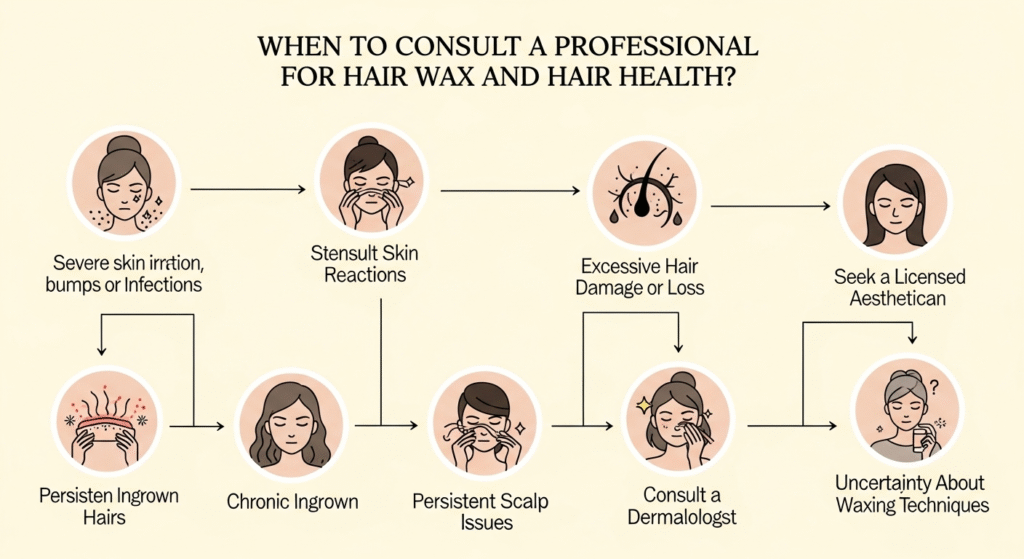
Signs of Scalp Issues
If you experience persistent scalp irritation, redness, itching, or flaking, it may be time to consult a dermatologist. These could be signs of an underlying issue such as scalp dermatitis or folliculitis, both of which can contribute to hair thinning.
Seeking Professional Help
For any significant hair thinning or noticeable patches of hair loss, it’s recommended to see a specialist such as a dermatologist or trichologist. They can assess whether your hair styling routine, including hair wax use, is contributing to your hair loss, and provide tailored advice for your scalp and hair care.
FAQs
1. Does hair wax cause permanent hair loss?
No, hair wax does not directly cause permanent hair loss. However, improper use, such as not removing the product properly or using it excessively, can cause temporary thinning or hair breakage.
2. How often should I wash my hair if I use wax daily?
It’s recommended to wash your hair 2-3 times a week if you’re using hair wax daily to prevent product buildup and maintain a healthy scalp.
3. Can I use hair wax if I have a sensitive scalp?
Yes, but be sure to choose products that are designed for sensitive skin. Always perform a patch test before full application to avoid irritation.
Conclusion
While hair wax doesn’t directly cause hair loss, improper use can lead to scalp issues such as product buildup and irritation, which could contribute to hair thinning.
By choosing the right product, applying it sparingly, and maintaining a healthy scalp routine, you can enjoy styling your hair without compromising its health.
If you’re experiencing hair thinning or scalp discomfort, consider consulting a dermatologist to assess your hair care routine and receive personalized advice. Book a consultation withDr. Uzma Irfan, an ISHRS-certified surgeon in Islamabad today, to ensure a healthy and effective hair care regimen for your specific needs.

